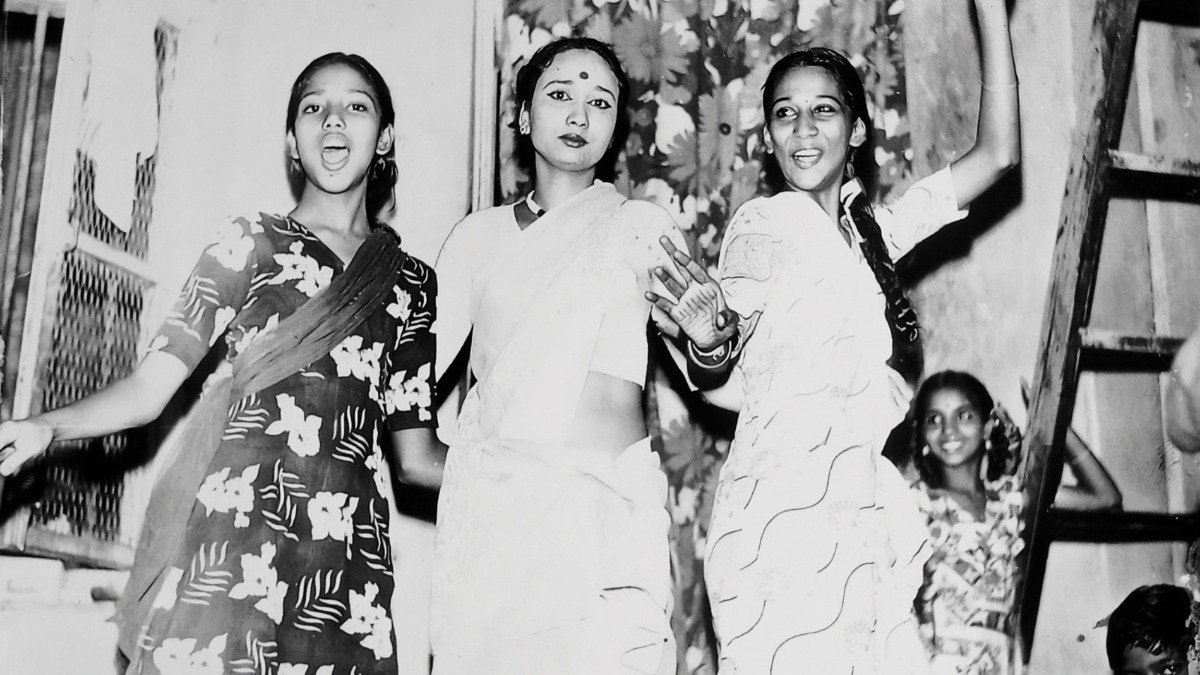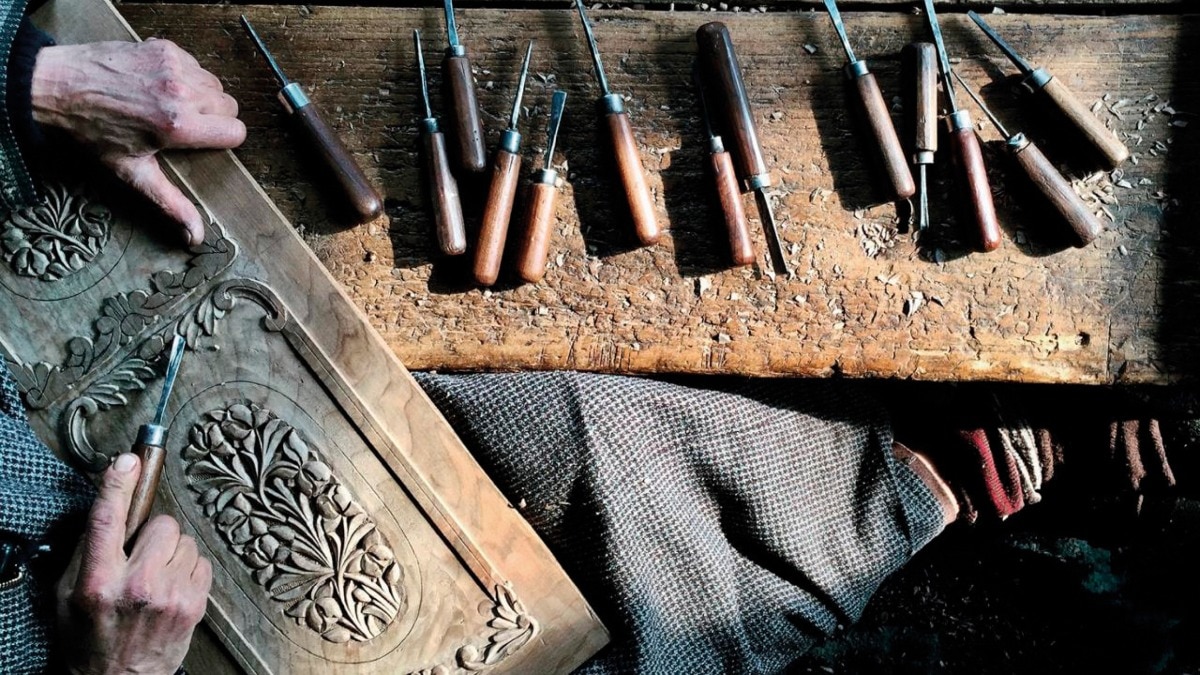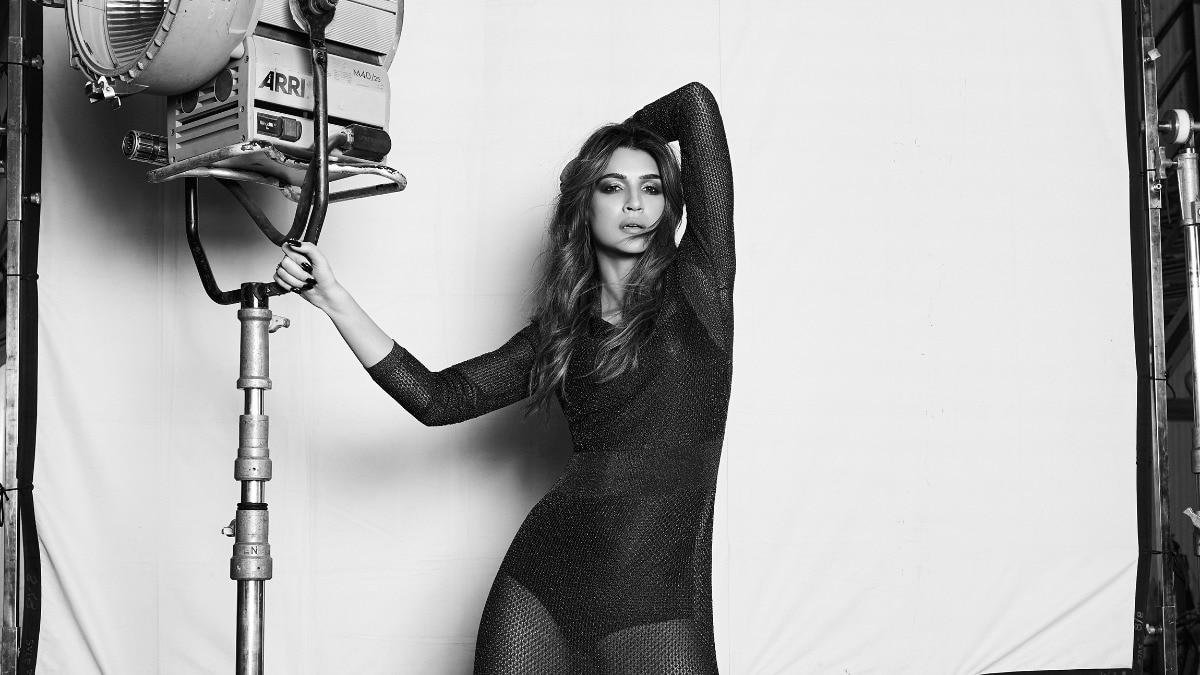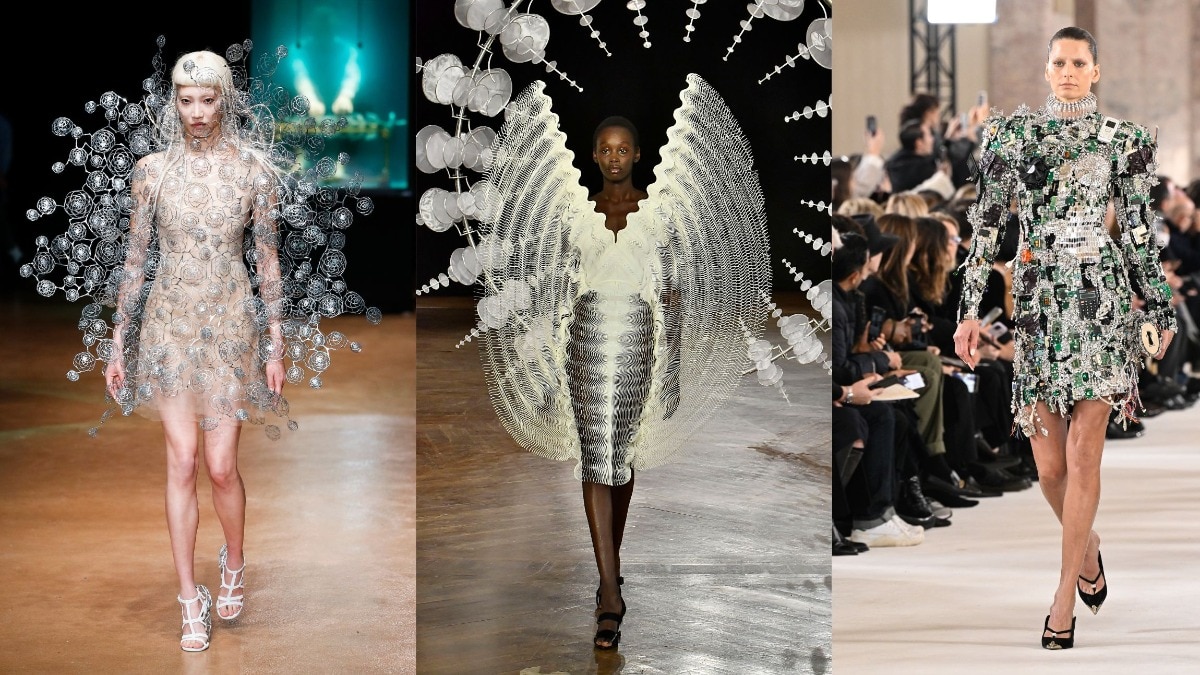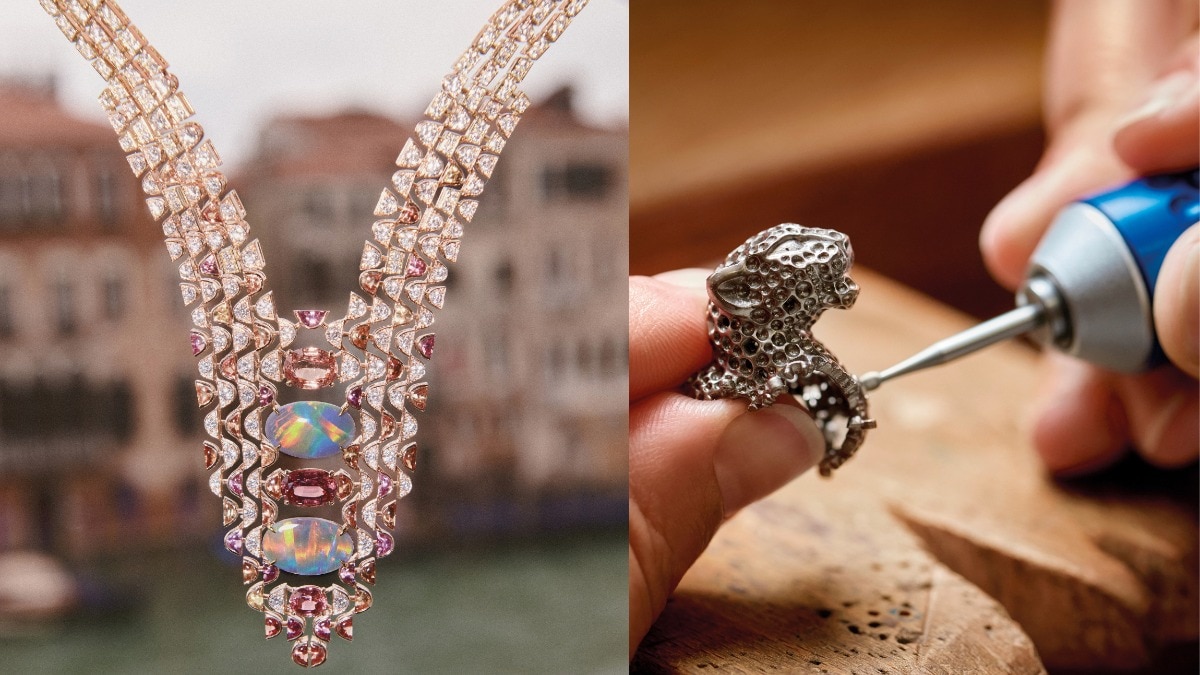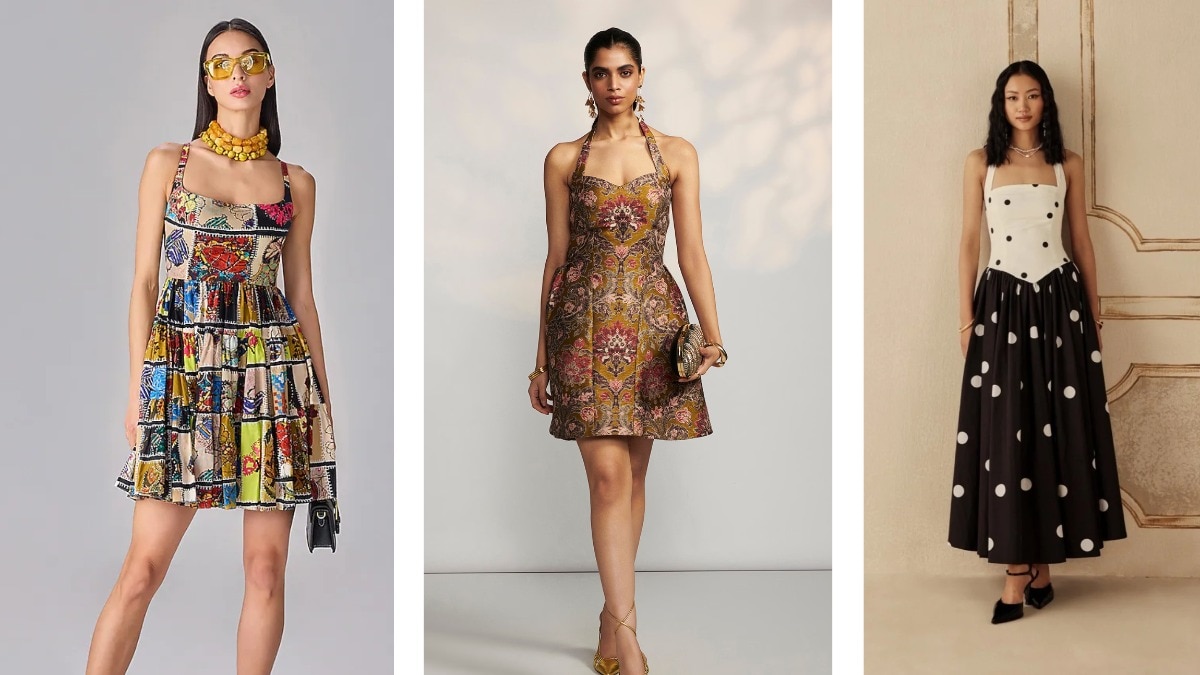
Women who lead—Guneet Monga, Sairee Chahal and other powerful Indian women share their inspirational stories
In part two of this exclusive feature, Bazaar India speaks to 10 women leaders who talk about their biggest life lessons, and how more opportunities can help shatter the glass ceiling.


Courage, resilience, and sheer will and drive to chase excellence unite these women from different walks of life. They strive towards stability, progress, and long-term development of the world, one act at a time. They inspire new leaders with their stories of success and continue to lead from the front.
The second part of this exclusive feature in Bazaar India features ten women whose journey and learnings have encouraged women everywhere in the country.
Sirisha Bandla—Vice President-Government Affairs, Virgin Galatic

I had been dreaming about going to space ever since I was a very young girl... However, it was one of those distant dreams that I thought could never be achieved because I had weak eyesight. You see, in order to join NASA and become a professional astronaut, you need perfect vision, and my eyesight disqualified me from pursuing my greatest goal. The day I found that out, I asked myself, ‘What should my next career path be?’. Around that same time, in 2004, the SpaceShipOne—which won the Ansari X Prize—went to space and returned, and it did it twice. I remember seeing a video of Richard Branson [British businessman and commercial astronaut] standing up on a pedestal with the founders of SpaceShipOne and saying, ‘Hey, I’m going to create Virgin Galactic—a company that will open up space for everyone!’. And I said to myself, “Okay, that’s how I’m going to go to space, through the private industry”.
This was when I was 16 years old (laughs). My dream finally came true when I flew into space on the Virgin Galactic Unity 22 nearly two decades later. My role amongst a team of six was to test the human-tended capability of our spaceship vehicles—that includes research and experiments with human interaction. Most people think that work related to space means you are doing research to learn more about the universe... And that is true, but today, researchers are also going to space to learn more about planet Earth and how to develop better lives for the people that live here. Part of me wanting to be an astronaut was modelled after people I saw doing what I wanted to do—like astronaut Kalpana Chawla and others who went to space and did incredible things before me. Having female role models in this profession—or any profession, for that matter—helps reduce the mental barrier in the minds of young women because it can help you share an identity with your role model. I think seeing and having women perform these experiments, being visible, and talking about the work they’re doing is definitely going to encourage more girls to take a look at the field. It’s so important for us to break stereotypes, and that includes the way we are meant to look, too—yes, scientists and engineers wear make-up and dress however they want to, and that doesn’t make them any less qualified or intelligent at what they do.
The work I do can get very demanding, but I always centre myself by reminding myself why I’m doing this—the passion for space overcomes everything else. When you get into work mode, one can get very anxious. But, at the end of the day, I love spaceflight and the curiosity of looking up at the stars and wanting to know what’s out there, or even looking down on Earth and being able to look at it with no borders motivates me to do more. I truly believe that space will help us become a better version of ourselves...there is so much to learn and discover. It fascinates me! Over the years, the best professional advice I have received is this: Remember why you’re doing what you’re doing. You must reflect on why you’re passionate about your field or work. Yes, you could get overwhelmed and there will be days when everyone’s stressed out, but always bring it back to why you’re doing what you’re doing.
On the road to success, having a supportive partner helps as well. My husband has been super supportive throughout. I remember, when I got the call about the opportunity to go to space, someone asked me, “Did you ask your husband?”. My reply was, “I don’t have to ask my husband, I told my husband, and he said he was very supportive”. There’s always a way to go around tradition and create your own path, one that others can follow and help create their own journey into a glorious future.”
By Radhika Bhalla
Photo credit: Dress: AKHL, Photographs: Tanay Babbar. Hair and Make-up: Kuhu Gupta. Styling: Yashima Babbar. Location: The Oberoi, New Delhi.
Sairee Chahal—Founder and CEO, Sheroes

“I like to think of myself as a child of the Indian Internet story. I built my first company in 1999, before tech became so intrinsically linked to our lives. But I was certain that the Internet was going to grow and that there will be growth in the tech space, and that became the central idea to everything I have done. Almost a decade later, I applied the same thought process to building an online platform for women and Flexi Moms was established. That is how my journey for building a tech company for women began. In 2013, I launched Sheroes, which turns 10 this year. It started as a small platform to support women and their careers but over time, it has grown into one of India’s largest communities for women with over 27 million members. When women come to us, they’re able to find a safe space, peers, and a safe social network, but more importantly, they’re able to find employment and entrepreneurship.
During Covid-19, I began a new project called Mahila Money, where we’re building a new bank to offer credit to female entrepreneurs. A lot of small businesses run by women don’t have access to capital, so we have become their source of productive capital or credit. We’ve created an ecosystem that connects women to the economic mainstream. Everything we do puts money in the hands of women, whether it is employment, entrepreneurship, or capital. It doesn’t matter what their socio-economic stature is, all these women are fearless; they are all chasing their dreams. They are winning at life every day, sometimes in very challenging circumstances. This community is my source of energy; I am amazed at how aspirational India is. Each one of these women wants to better her life. I think the biggest enabler in our lives is the Internet. The reason we have been able to do all this is because Internet data is cheap. An ecosystem will always grow when capital is provided to entrepreneurs. I believe if we really want to change the equation, if we want more female entrepreneurs, we need to finance more women. Whether it is venture, credit, or grants, we need to make more capital available for women across the country. But along with capital, we need a sense of kindness. We are very unforgiving of women’s mistakes. However, if we want women to succeed, we have to let them take risks. It is alright if a woman fails. She will rise again.”
Photo credit: Blue Hour Sari Set, ILK; Pearls on Pearls Studs, Kate Spade, Photographs: Prabhat Shetty. Styling: Palak Valecha. Hair and Make-up: Krisann Figueiredo. Fashion Assistant: Tarangini Goel. Hair and Make-up assistants: Dinkle Gosrani and Virja Mehta.
Aditi Dugar—Founder & Director, Masque and Urban Gourmet India

“I’m an accidental ‘foodpreneur’. I began my career in banking and moved to food quite unexpectedly. My mother used to take cooking lessons at home. And you know how mothers are—they don’t tend to run an extremely professional setup! That’s when I stepped in, only to realise that this was my calling and passion. I am a people’s person and I love to win hearts through food.
My journey began, literally, from a home kitchen. Mom and I started a catering company called Sage and Saffron in 2011-12. Since we’re from Rajasthan, we curated flavours of the home and served them on beautiful platters...it gained attention for the authentic flavours. Since I did not hail from the food industry, I began training in different kitchens to upskill myself. I trained in London, Dubai, and with street food specialists in Bangkok. Over time, Thai became a specialty of ours. So, from catering for four to 12 people from a home kitchen, we went up to 400 people. And that was when we realised we needed to move to a more professional setup.
In 2015, I got myself a large commissary. I began researching and realised that India had a lot to offer in terms of produce and local ingredients. It also occurred to me that there was a large gap in fine dining. When we opened Masque in 2016, we were far ahead of the curve—we were the only tasting menu restaurant in the country. As a result, it was a huge risk. Many said it was a crazy idea and that we were going to fail. I think that was the single driving factor that made me realise this is what India needed. Why blindly follow a concept that already exists?
I think taking risks is part of my DNA. And here we are, seven years later...the Indian food scene is really on the forefront and it is exciting to be a part of this journey. I want to create a legacy. I am not insecure about my recipes, or the people that work with me. I’m very open about sharing contacts or helping people. And I think that comes from a very secure place of knowing where I want to take Indian food and this restaurant. The most exciting thing about our journey has been exploring Indian ingredients and being able to celebrate them. The ultimate goal is to keep building on this, hopefully, go into a product line and make Masque a household name.”
By Smita Tripathi
Photo credit: Tangerine Blazer Set, Pink Porcupines; Recif Hoops, Radhika, Agrawal Jewels; Condora Pumps, Christian Louboutin, Photographs: Prabhat Shetty. Styling: Palak Valecha. Hair and Make-up: Krisann Figueiredo. Fashion Assistant: Tarangini Goel. Hair and Make-up assistants: Dinkle Gosrani and Virja Mehta.
Guneet Monga—Film Producer and Oscar Winner

I always wanted to win an Oscar. I have manifested this all my life. And ever since we won it (for The Elephant Whisperers), it’s been so overwhelming, beautiful, and surreal. I recently got married in December and the Oscars were on March 12, so it’s been an ‘Everything, Everywhere, All at Once’ situation (laughs). I believe there are more Oscars coming for Indian feature films and feature documentaries, and I want to continue the winning spree. I was always determined about chasing my passion and not money. I chased my dreams and happiness, and the money always followed.
I’ve worked on more than 40 films up till today, and filmmaking was always my priority. I said ‘yes’ more often than I said ‘no’, and I always showed up for all the opportunities that were presented to me. It is easy to start something, but it takes everything for one to finish it. I have never seen work as a burden.
Filmmaking is what drives me and brings me incredible joy! When I look back, I have learnt that patience and uplifting myself will make everything work out in the end. We are in the business of selling dreams and my work is mostly long format...as a result, it is necessary to fall in love with the story. We work on a story for years before it can be presented to the audience. Having faith in people, intentions, and the organisation matters a lot. Learning integrity and helping your team lean into their integrity is very important.
Making movies like Pagglait (2021), The Elephant Whisperers (2022), and Kathal (2023) takes years of showing up every day and keeping it real. I think people need to learn the art of producing, which is a combination of business, art, and commerce. One can’t have a singular lens towards it. I’m a producer who can speak that language and make things happen. We definitely need more producers who can understand the business and launch commercially successful films. A common trait I have noticed in successful women is that they are all very good at multitasking. But truly successful women always celebrate other women. These days, I am celebrating ‘me time’. It has made me a better person and a lot more content. I accept everything with grace and gratitude.”
Photo credits: Enite look: Guneet’s own; and Diya Studs, Eurumme Photographs: Harmeet Singh Sana. Hair and Make-up: Riya Saluja.
Rohini Iyer—Founder, Raindrop Media

We used to be Raindrop Media, but I’ve recently set up a group of companies called Rain Reign and I am extremely proud of this reinvention. We launched 15 years ago—an impossible dream that is a reality today. Through Raindrop, we have been a part of the larger entertainment ecosystem, and now, we taking over the multiverse of entertainment. This has always been part of my plan—to grow and expand, to do
more. I have always been ambitious. People keep saying ambition is a bad word, especially for women, but I would like to tell every person reading this—own your ambition; be proud of it. It is the backbone of success.
I thrive on difficult situations and problems, and I believe that when a crisis strikes, you have an opportunity. And that’s a wonderful moment because you could go either right or left, and it is all about making a choice. This becomes a turning point in your life, which makes you learn and grow. When I started out, a mistake I made was not giving enough importance to money. Women tend to feel apologetic when asking for money. We feel grateful, almost, when given a break or if someone is trusting us with a big job. And we forget to ask for our due. Now, I have realised that money is something you need to ask for confidently. Because they need to value your worth.
The gender pay gap continues to exist in the film industry—and almost every industry that exists—and this is something I have been fighting against for some years. A woman is bringing as much to the table as a man is, and the emotional intelligence that we have is much superior than any man’s. Hence, it is important that women get their worth. And if I had to offer another piece of advice, it would be to trust your gut. Women need to chase their own dreams and do what they feel is right—don’t let someone else take your decisions for you. In the end, always remember that you are, indeed, worth it.”
Photo credits: Entire look, Rohini’s own
Schuana Chauhan—CEO, Parle Agro

I love what I do and I’m passionate about it. I’ve been brought up working within the family business and work has been a part of my daily life... through discussions with my father at the dining table, or with my sisters, or my mom. During my last year at university, I went up to my professor and told him that my father needed me back home. And that while I would finish my paper, I would not stick around for graduation. I returned to India, slept for two days and then threw myself into work and joined the family business. I absolutely love what I do. I love building factories. I love the challenges. I love working with people. I believe leadership is all about building confidence. You have to have the confidence within yourself and believe in yourself even when you fail. Another very important facet is the ability to take decisions, and choosing the right decision. Sometimes, the right decision is not going to be the best decision that you’ve chosen, but a leader should be able to take that decision, and then stand by it and its consequences. I don’t just make a decision on my own, but I do it along with all the stakeholders. I’m very committed to work, and I believe it shows. When a team member comes to me with a problem, I always listen carefully; I don’t get irritated. However, once I’m done listening, I push them to get the result. I think this balanced approach has been my biggest strength.
I love competition. But I am not always just competing with another person; I’m also competing with myself. I believe a good leader needs to keep learning. You cannot be a leader and say, ‘I know everything’. Every day, one learns something new, regardless of your position or title. There is so much out there.
The world is moving so fast. I didn’t know anything when I joined the business, but today, I am experienced because I have learned. Over the years, I have understood that sometimes, the same problem comes to you in different ways. And because of my experience, I am also able to resolve a lot of the issues that are repeated. I believe mentorship is crucial for success. And the biggest advantage of being mentored by another woman is that women tend to face similar challenges. A man may or may not be able to make sense of certain situations, but I think a woman would understand them far better, especially if she is a working woman and has a family to take care of as well.
At Parle Agro, growth is our biggest focus. We are doing so many innovative things at work, and I would like to see them all come to life. Our new plant will come up soon and that will become our 10th manufacturing location. We have seen every plant grow from scratch, and each one is a proud moment. When you see all your efforts come to life...that is a wonderful feeling.”
Photo credits: Pearl embellished tweed jacket and Spade Button Crepe Pants, both Kate Spade; Lipsita Jane Pumps, Christian Louboutin, Photographs: Prabhat Shetty. Styling: Palak Valecha. Hair and Make-up: Krisann Figueiredo. Fashion Assistant: Tarangini Goel. Hair and Make-up assistants: Dinkle Gosrani and Virja Mehta.
Suparna Mitra—CEO, Watches and Wearables Division, Titan Company Limited

I started my career in 1992 at Hindustan Lever after completing my MBA. It was a very different India then, with very few women in the corporate sector to begin with. But it was also the cusp of liberalisation with business and industry just opening up. After a couple of years, I joined Titan in international marketing, then moved to Tanishq. In 1997, after my elder daughter was born, I felt pulled in different directions. So, I took a break for almost three years. I joined a tech company in 2000 and then a textile company for a few years before rejoining Titan in 2006. I have been with the company ever since. The company has been kind in giving me many opportunities, which have developed many sides of me as a professional and as a leader. And I have also faced every new opportunity with a growth mindset and asked how I can contribute.
Conceptually, everyone understands that they have to plan and then execute. But very often, the issues or challenges are not fully thought through. Then we go into a vicious cycle of dousing fire after fire, and we don’t have the mental bandwidth to step back and truly understand what is going on. For instance, in a consumer business, we need to hear what the consumer is telling us and create different processes to reach the customer. I realise that many women are torn between the guilt of being a working mom and not being able to manage all their responsibilities, from child care to elder care, that fall on their shoulders. The mental and emotional heavy lifting that women do can often make them prioritise everybody but themselves. Ultimately, many women give up and find it very hard to get back on, and this was particularly true two decades back. Today, companies are more inclusive and do more to help women either not leave or get back to work with confidence. I have two children and I took a break after each birth. But I think I am where I am because I didn’t give up and simply persisted.
Another piece of advice I give people is: don’t overplan your career. We tend to set rules for ourselves—we want a promotion every two years, we want to reach a certain place by a certain age. But I was always very fluid regarding my goal posts, and opportunities came my way. It is important to ask yourself whether your career is a marathon or a sprint. And obviously, the answer is not a sprint. But for me, my career is almost like a jungle gym. There is play and delight in it. If you don’t enjoy yourself, and you don’t like your work, it’s not worth it. So really, you cannot over calculate things, and you have to take some chances. If things don’t work out, get out. But if they do work out, be flexible, and know that everything might not work out in a textbook fashion. I always place progress over perfection. You have to keep moving, keep building...There is nothing called perfection; perfection is simply a moving target.”
Photo credits: Arifa Mashru Sari, Raw Mango; Photographs: Neha Chandrakant. Styling: Pranay Jaitly and Shounak Amonkar. Make-up: Krisann Figueiredo. Hair: Rakshanda Irani. Styling: Pranay Jaitly and Shounak Amonkar.
Dr Priya Abraham—Senior Professor-Virology, CMC Vellore

I am proud to have spearheaded the work done at the National Institute of Virology, Pune, to fight Covid-19 in India. I had taken over the reins at the institute just two months before the pandemic struck, and the months that followed were dramatic, challenging, and demanding. There were endless sleepless nights, but there was a much larger purpose at hand—to curb the spread of a terrible virus, facilitate life-saving data, and enable vaccine trials. I truly think that there is no person—man or woman—who does not struggle with work-life balance. Different people face this challenge in different ways. I, too, have struggled with work-life balance, but when I am gripped with challenges and the pressures of work, I always enjoy looking at the funny side of life. What helps me get by is lighter moments with colleagues or family that puts things in perspective. When you return after even a brief break, you look at the same problem very differently, and that can help you achieve your goals.
In my personal life, I have been very lucky to have an incredibly supportive family that has valued me for my work and passion. So, while I have always struggled with work-life balance, I have found ways to de-stress. My leadership style is to be as inclusive as possible—I don’t believe in camps or favouritism...I try to include each team member and value every person in the organisation regardless of their stature or position in the hierarchy. I believe even the people who do seemingly humbler jobs are doing something very important for the organisation. If our housekeeping staff didn’t do their job, our surrounding environment won’t be the way it should be. I always value people without looking at their stature or job description. If they are doing their bit for the organisation, they have the same status as a senior colleague who is also doing a great job. I have held management positions at different institutions in the past—and they haven’t always been roles with public recognition—and I believe I have made a significant contribution to the running of each company because I have always believed that an organisation is always bigger than any of us or all of us. If I have worked towards the betterment of an organisation, I think I’ve done well.
Professionally, it is my hope that more individuals will come forward and shoulder responsibility rather than criticise others—this is very important because when more people take ‘ownership’, an organisation can achieve more. Personally, my hope for the future is that, above all professional achievements, I come through as a good human being. Leadership can come at a cost—it can be incredibly lonely at the top, and you cannot be loved by all. But, as much as possible, try to be a reasonable, approachable, accessible, and amicable person, both in your personal and professional life. I’d want that, at the end of the day, people say, ‘You know, she’s a good human being’.”
Photo credits: Kashmir Satin Border Sari, Anavila; Photographs: Neha Chandrakant. Styling: Pranay Jaitly and Shounak Amonkar. Make-up: Krisann Figueiredo. Hair: Rakshanda Irani.
Upasana Taku—Co-founder, Mobikwik

While I was blessed to have a lot of help and support from my family, I faced both gender bias and age bias because I was fairly young when I started. So whether it was sexism during investor pitches, or prejudice from senior employees who didn’t want to report to a female founder, or whether it was the babus in the government bureaucracy—I have faced all kinds of challenges. But I have come a long way since then. I am recognised as a fairly established entrepreneur in India, and I received an award from the President of India for being the first female fintech founder. I am proud to say that today, at Mobikwik, we have a consumer base of 140 million people and that we are a profitable company. So, it has been a journey full of adventures and challenges.
To be a good leader, you first need to have a well-developed thought process and analytical skills. Then you need to have fairly strong communication skills, because you need to articulate your vision and inspire others. Empathy is also required, because when you are getting team members to collaborate with you, you need to appreciate their angles, too. Adaptability is a crucial asset. Building something from scratch means you will face enormous challenges, and nothing will go according to plan. It’s like your life is a Twenty20 match, and you have to think on the spot. You also need a lot of courage—to not give up and to keep going. These are some of the key elements required from a leader. I don’t believe the list is any different for women, except it can be tougher for some to manage the courage and adaptability parts, depending on the sector they are in. If I am a woman setting up a fashion startup or luxury-products company, everybody is happy because it’s a sector in which women are known to excel and lead. But if I’m trying to build, say, a space-tech startup or a heavy engineering related company, where people are not accustomed to seeing women, it will be harder because people don’t want me to succeed there. So I’ll need more courage, more determination, to rise to the top. But it is possible. And I can say this with confidence because when I started, there were no women in fintech. In fact, fintech didn’t exist. It takes time and effort to achieve success, but it will happen.
There are many myths regarding female leaders. One is that they are not good at math or finance, and that’s a ridiculous belief. Our finance minister is a woman! But it remains a fairly popular misconception. Then there is the other popular one—that women leaders are emotional. And then people can’t make up their mind whether you lack assertiveness or you are overly bossy. These are all ridiculous misconceptions. Just like there are all kinds of male leaders with different personalities, women also have different personalities. And women in leadership positions have repeatedly proven that they are able to lead effectively, to make rational decisions based on data, and to navigate complex industry challenges with their exceptional skills and calm composure.”
By Smita Tripathi
Photo credits: Entire look, Upasana’s own
Mahua Acharya—Chief of Staff, C-Quest Capital

We are in the midst of a crucial shift in India where we are transitioning over to a cleaner economy. While it is important to make greener options accessible to everyone, that option must also be commercially viable. Children should start talking about climate change at an early stage. But that conversation should be like normal business throughout their school and college years. We must have a generation of people knowing that it is their personal responsibility to change the world, only then will they be motivated to do or say something.
In the area of ‘clean energy’, the government’s role is that of an enabler. After the government enables, our market is big enough to get things moving, and then the government becomes the regulator. But it is only when people respond positively that systems change. When it comes to work, one of the biggest lessons I have learnt over time is to step back, observe, and then make a decision. I take feedback, absorb it, and if I disagree, I disagree, but I make a decision. I’ve also learnt over the years, and am still learning, how to separate the signal from the noise and the power of focus. With time and exposure, you get a little more confident and learn to utilise that confidence to deliver things. It also helps to have a sounding board every now and then. I am always observing leaders and I’ve had brilliant mentors and managers who have done an incredible job of pushing me to do more and better. When you are being pushed, you sometimes think, ‘God, why are you pushing me into the deep end?’. But trial by fire is useful.
It is also important to mentor those in junior positions. In every company, there are so many subordinates who are ambitious but are not sure what they want, how to show it, or how to have the confidence to go for what they want. So, establish relationships with such subordinates and keep that relationship confidential. Women tend to be a lot more honest about sharing their negatives and a lot more prudent talking about their positives, and so you never really discover how fabulous they are. For women to be successful, we need more women supporting women. My 15-year horizon, as I would call it, is to see a reversal of our daily environmental degradation. I want to see a deliberate effort to curb air pollution and more electric cars on the road. I’d like to see these not as goals we are struggling to achieve, but as a normal part of our everyday lives.”
Entire look: Mahua’s own; Photographs: Neha Chandrakant. Make-up: Krisann Figueiredo. Hair: Rakshanda Irani.

